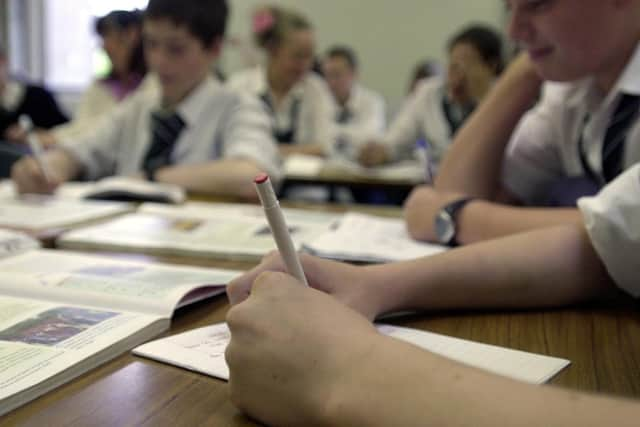Parents hold the keys to getting Yorkshire children back into classrooms - Matt Buttery
Yorkshire hasn't escaped the absenteeism epidemic, with further data from the DfE revealing Hanson Academy in Bradford has the highest rate of non-attendance of any state run primary or secondary school in England last year. However, instead of allocating blame for non-attendance on schools or indeed parents, we need to engage in a broader conversation on what is driving the spike in the number of children refusing to go to school, and how to address it.
School refusal is a complex issue and can arise for a variety of reasons. These include distress related to attending or remaining at school, attending school-related activities, or not feeling well at school, child and parent mental and physical health, bullying, unmet special educational needs, family functioning, parental engagement, and challenges in the home - school relationship. These and more can all contribute to school refusal. Across the UK, one of the driving factors behind the rise of school absenteeism has been the lasting effects of the pandemic. Data from the DFE estimated that absenteeism was 50 per cent higher last year than pre-Covid. The pandemic and the disruption it caused to children's lives and schooling have profoundly impacted children's learning and emotional well-being.
Advertisement
Hide AdAdvertisement
Hide AdResearch has shown that during the pandemic more than a quarter of children and a fifth of teenagers suffered an increase in depression and anxiety. With many children feeling anxious and overwhelmed, some have turned to avoidance as a coping mechanism.


Parents can play a pivotal role in reversing this rise in absenteeism and re-engaging children with education. At Triple P, polling with parents in the UK has shown that most parents feel parenting is the most important job they will ever do, and yet 75 per cent feel there is a stigma attached to asking for help. It is essential all parents feel empowered to seek additional support when they need it.
A recent survey of 271 practitioners, commissioned by Triple P, found that school refusal was a primary reason for nearly a quarter, 24 per cent, of parents seeking help in the last year. The data revealed that refusing to attend school post-lockdown had become a bigger issue for parents than aggression/violence, 15 per cent, disobedience, 15 per cent and financial issues, 9 per cent.
Parents are hugely influential in helping children to reach their potential, whether socially, emotionally or academically. For those parents in Yorkshire looking for more support, accessing an evidence-based parenting programme can provide practical guidance and tools.
Advertisement
Hide AdAdvertisement
Hide AdAlongside accessing evidence-based parenting programmes, parents can focus on a few simple strategies, to support their child back into the classroom.
It is important to ensure your child has a predictable schedule with regular routines. Children are more likely to discuss their worries regarding school if you establish open communication early on. Instilling consistency between school and home can help your children thrive by allowing them to anticipate what comes next.
Matt Buttery is chief executive of Triple P UK and Ireland and Honorary Associate Professor at the University of Warwick.
Comment Guidelines
National World encourages reader discussion on our stories. User feedback, insights and back-and-forth exchanges add a rich layer of context to reporting. Please review our Community Guidelines before commenting.